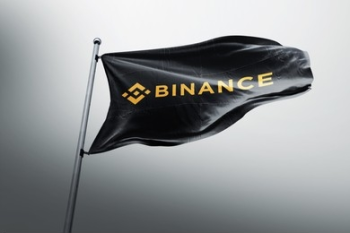Nigeria has initiated a bold request to Binance, the world’s leading crypto exchange. The Nigerian government has called upon the exchange to provide comprehensive data on its top 100 users based in the country, alongside a detailed transaction history spanning the last six months.
This development emerges amidst allegations against the crypto exchange. The allegations accuse the platform of facilitating “illegal transactions” that purportedly disadvantage the nation’s financial stability.
Regulatory Tensions And Community Reaction
The request from Nigerian authorities extends beyond user data, encompassing a demand for Binance to address “outstanding tax liabilities.” This request has sparked a lively discussion among the local community, with various individuals sharing their perspectives on the issue.
A community member on X, Ayo Adekola, observed that since the exchange operates without a formal Nigerian entity, the request for user data seems out of place. Without a local business presence, Binance is not legally bound to comply with data requests from the Nigerian government.
Conversely, another participant, Design Chief Priest, suggested that rather than comply with the demand for user data, the exchange might opt to withdraw its services from Nigeria altogether. Such a move could lead to losing confidence in the platform among users worldwide.
Binance doesn’t have a Nigeria entity so it’s totally awkward that they’re requesting that information. Binance isn’t under any law to give data to Nigeria govt since they have no business here
— Ayo Adekola (@maxinjector) March 13, 2024
Notably, this situation has escalated tensions between the Nigerian government and Binance following claims that the exchange was involved in transactions that undermined the value of the national currency, the naira.
The seriousness of these allegations is further highlighted by the detention of two exchange executives, Tigran Gambaryan and Nadeem Anjarwalla, who have been held in government housing since February 26 under the watch of the Nigerian National Security Agency.
The executives, who hold citizenship in the US, Britain, and Kenya, have been confined without clear communication regarding their situation, sparking concern and distress among their families.
Despite these challenges, Binance has expressed its commitment to cooperating with Nigerian authorities to ensure the safe return of its executives.
This scenario also sheds light on the broader context of regulatory scrutiny that Binance faces in Nigeria and globally, as evidenced by the recent legal challenges encountered by its former CEO, Changpeng Zhao, also known as CZ.
Binance Global Scrutiny
The ongoing situation in Nigeria is part of a larger narrative of increased regulatory scrutiny facing cryptocurrency entities. Binance’s operations have come under the lens of Nigeria and other jurisdictions, including the United States, where the Department of Justice has investigated the exchange.
The admission of guilt by Changpeng Zhao to violating anti-money laundering laws and the resultant financial settlement with US authorities exemplify the complex regulatory environment that cryptocurrency exchanges navigate.
So far, CZ continues to navigate legal hurdles imposed by regulatory bodies. According to a recent disclosure, the ex-CEO is now required to obtain approval for any travel within the United States and must be escorted by a court-designated supervisor for any overseas travel that necessitates using a passport.
Featured image from Shutterstock, Chart from TradingView











